Annual Conference of Human Rights 2016
Black-and-White Values in a Polarizing World
The sixth annual Conference on Human Rights will focus on two topical issues of international concern: migration with a main focus on immigration issues; and propaganda as it related to the freedom of speech.
This year’s topics include a public opinion survey on human rights conducted among Estonians, and among new immigrants living in Estonia regarding their assessment of human rights and their acclimation to Estonia. We will speak about collective rights and propaganda, which have changed people’s understanding about fundamental rights. In light of the migration crisis, we will ask, “Who is European and who has the right to be European?” And we will also examine whether, in a Europe of increasingly contradictory ideologies, the concept of universal human rights is still viable.
A day before international Human Rights Day, the Estonian Institute of Human Rights will host its annual traditional Conference on Human Rights in Tallinn, Estonia for the sixth time. Each year the conference focuses on topical issues related to human rights.
This year the theme of the conference will be human rights in a changing world – a world where the prevailing views have become too black-and-white. Global and regional crises are creating a new situation in which human rights are acquiring ever greater importance. The panels will discuss important local and international topics, focusing on how changing times also result in changes in the implementation of human rights.
Estonian human rights report and immigrants’ opinion survey 2016
The day will start with the introduction of a survey, which researched public opinion regarding the human rights situation in Estonia and examined the level of acclimation by the new immigrants. The research was conducted by the Estonian research agency Turu-uuringute AS.
The survey conducted among the new immigrants examined their level of acclimation, interest in the Estonian language and visions for the future. At the conference we will get an overview of what Estonians and the foreigners living in Estonia think about the human rights situation in Estonia. The initial findings of the survey will be presented at the conference.
After the introduction of the survey, a panel of experts will discuss the results of the survey and analyse the situation of the new immigrants and their opportunities for acclimation in Estonia.
Freedom of speech in a multicultural Europe
During the second part of the day, we will discuss human rights values in Europe and the neighbouring countries. The migration crisis has raised questions related to human rights and made many people doubt the fundamental values of the European Union, while raising issues related to the freedom of speech and expression. Will humanist European convictions survive or will we soon see states rescinding the Convention on the Protection of Human Rights and Fundamental Freedoms? Ideologies have already raised their heads that we thought had already been consigned to the history books.
We are interested in whether a uniform and effectively functioning Europe is even possible, when various political forces, as well as various ideas and cultures are vigorously confronting each other in neighbouring states. Populism has become a normal part of the public discourse in societies undergoing change, and many oppositional forces are seeking the support of the people.
A crisis in the freedom of speech and immigration has reinstated the differences between Western and Eastern Europe. The political and economic elite finds itself in opposition with the “simple people”, cosmopolitan multiculturalism is at odds with the idea of nation-states. These developments make us wonder whether liberal views on cultural diversity will survive or are we moving toward significantly harsher principles of cultural integration. Based on the universality of human rights and discussing European values, we must ask, “Who is European and who has the right to be European?” We will examine whether the spread of extremist ideologies has caused a crisis in freedom of speech and expression.
Collective human rights and propaganda
During third part of day, we will discuss collective human rights and the impact of propaganda thereon. Essentially, human rights are an individual’s rights. However, to protect an individual’s rights we must make collective agreements and law that may, under certain conditions, limit individual rights. Which is overriding – an individual’s rights or collective rights? In a society where collective security is ensured, human rights can also be protected, but how much can an individual’s rights be restricted in order to ensure collective security?
The current situation and unanswered questions have created an opportunity for other interest groups to take advantage of the weaknesses in Western democracy and created a rise in populism in Europe and the United States. Russia is contrasting itself with the European project and offering their concept of the world as an alternative – a world in which human rights and democratic values are not the most important interests of the state. “Traditional values” and a “strong leader” are offered as a counterbalance to supposedly weak Western politicians. This activity, which sows conflicts and doubts in European citizens results in a weakening of stability and the collapse of civil society. It also undermines faith in government. How can we cope with propaganda that is helping to deepen the crisis in European values? Considering the security situation, will human rights be just as important or do they need to be reinterpreted in the name of a collective defence?
The conference, which has become an annual event in Tallinn, will bring together over 350 activists, diplomats, politicians, analysts and experts from Estonia and around the world, in order to tackle the important human rights issues of the day.
The speakers who have participated in our conference in the past include Madeleine K. Albright, Marriët Schuurman, Toomas Hendrik Ilves, Mustafa Dchemilev, Dalee Sambo Dorough, Nina Kchurcheva, Stephen J. Rapp, Zhanna Nemtsova, Péter Szijjártó, Jan Knutsson, Vagn Joensen, Cuno Jakob Tarfusser, Richard Barrett, Quirine Eijkman, Mustafa Qadri, Kalev H. Leetaru, Artjom Troitski, Gentian Zyberi, Dunja Mijatovic, Thomas Zerdick, Malavika Jayaram, David Mothander, Douglas Davidson, Anja Mihr, Christopher McCrudden, Galina Timtchenko, Maria Makejeva, Dmitri Muratov, Marina Kaljurand and many others.
The patron of the conference is Kersti Kaljulaid, the President of Estonia.
By invitation only.
The organiser reserves the right to make changes in the schedule and the presenters.
-
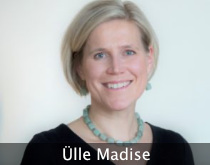 2019Parallel World Values and InterestsA clean environment and future of the globe, the possibility to preserve your privacy and option to disengage, which is necessary for the human psyche, are practical topics that apply to everyone.
2019Parallel World Values and InterestsA clean environment and future of the globe, the possibility to preserve your privacy and option to disengage, which is necessary for the human psyche, are practical topics that apply to everyone. -
 2018Conflicts of ValuesIn 2018, the panels discussed the topic of small countries as equal partners, whether human rights have a future, how much algorithms affect human rights and whether Russia has a future.
2018Conflicts of ValuesIn 2018, the panels discussed the topic of small countries as equal partners, whether human rights have a future, how much algorithms affect human rights and whether Russia has a future. -
 2017Are Human Rights in Freefall?The conference will address a number of today’s most important topics – terrorism, technological development, security, small states in a globalising world, culture and international cooperation – through a human rights perspective.
2017Are Human Rights in Freefall?The conference will address a number of today’s most important topics – terrorism, technological development, security, small states in a globalising world, culture and international cooperation – through a human rights perspective. -
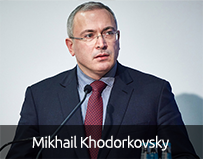 2016Black and White Values in a Polarizing WorldThe topics under discussion this year include a survey of public opinion on human rights among the Estonian citizens and foreigners living in Estonia, questions related to collective human rights and propaganda that have changed people’s understanding of basic rights.
2016Black and White Values in a Polarizing WorldThe topics under discussion this year include a survey of public opinion on human rights among the Estonian citizens and foreigners living in Estonia, questions related to collective human rights and propaganda that have changed people’s understanding of basic rights. -
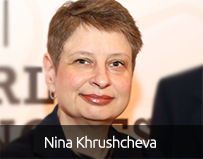 2015Human Rights in Changing TimesThe topics under discussion this year include case studies from the European Court of Human Rights, linguistic human rights, as well as the views of various generations of Russians today regarding their society.
2015Human Rights in Changing TimesThe topics under discussion this year include case studies from the European Court of Human Rights, linguistic human rights, as well as the views of various generations of Russians today regarding their society. -
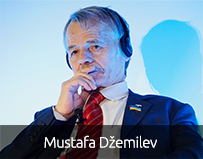 2014Dignity in the context of human rightsThis year the conference agenda included three keynotes and a panel discussion following each one: 1) guarantees under international law; 2) rights of native peoples; guarantees under international law; 3) the situation and future in Russia and Ukraine and human rights.
2014Dignity in the context of human rightsThis year the conference agenda included three keynotes and a panel discussion following each one: 1) guarantees under international law; 2) rights of native peoples; guarantees under international law; 3) the situation and future in Russia and Ukraine and human rights. -
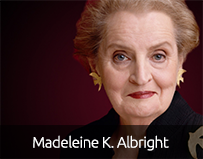 2013Human Rights and the Freedom to AssociationThis year’s annual conference, titled “Human Rights and the Freedom of Association” will analyse the global developments in human rights that have taken place in 2013.
2013Human Rights and the Freedom to AssociationThis year’s annual conference, titled “Human Rights and the Freedom of Association” will analyse the global developments in human rights that have taken place in 2013. -
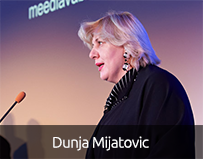 2012New Challenges of Human RightsOur conference examined human rights where the internet and the concept of security have altered dramatically our 20th century understanding of the core issues of human rights.
2012New Challenges of Human RightsOur conference examined human rights where the internet and the concept of security have altered dramatically our 20th century understanding of the core issues of human rights. -
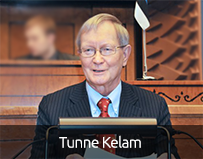 2011Dedicated to the 20th anniversary of restoration of independence of Estonia
2011Dedicated to the 20th anniversary of restoration of independence of Estonia

